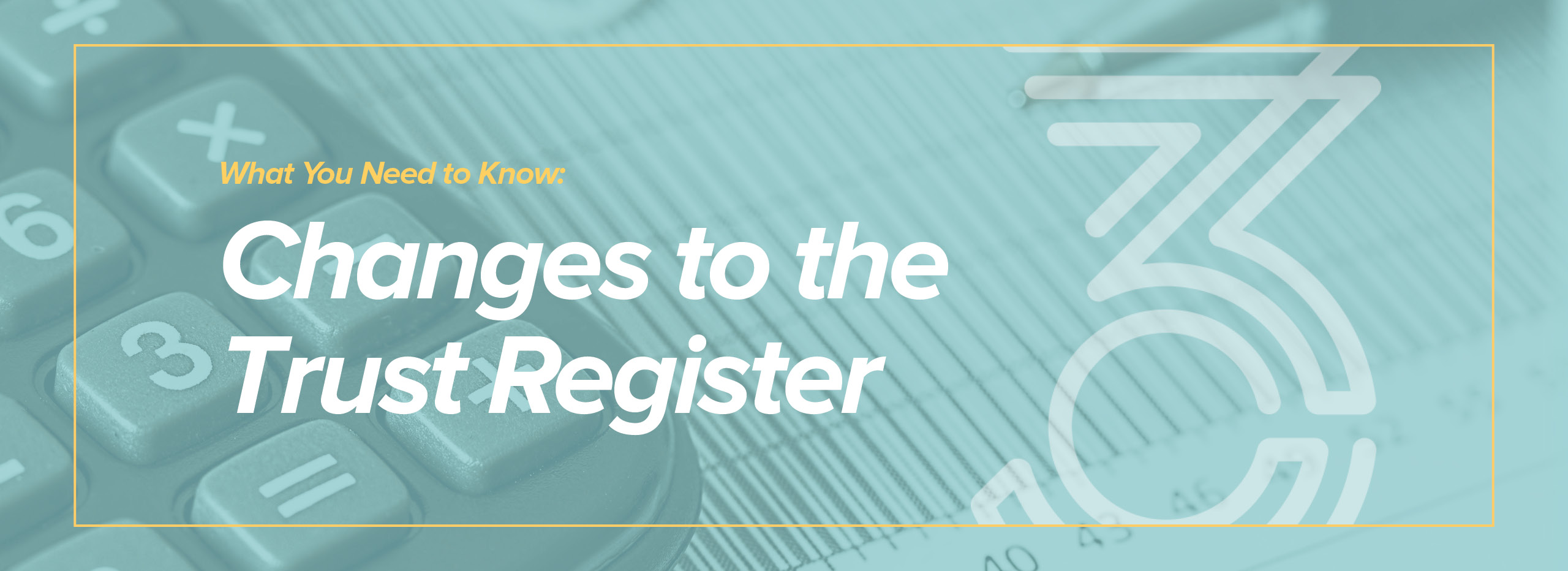This week, Three Counties Director Corryn Wild talks about the responsibility on trustees to keep up to date with changes to the registration requirements for trusts.
As I mentioned in last week’s blog, taking on the responsibilities of a trustee is no minor undertaking. In fact, with recent changes in terms of the reporting requirements of a trust, the job is getting bigger and, potentially, more onerous than ever before. With changes to the requirements for registering trusts now in play due to the EU’s Fifth Money Laundering Directive (5MLD), it’s more important than ever for trustees to know their stuff.
What is the Register?
The Trust Register, which has been around since 2017, is in place to provide a reporting mechanism for trusts’ liabilities to UK tax, as well as meeting the EU’s Fourth Money Laundering Directive requirement to maintain a register of the beneficial ownership of UK tax liable trusts.
What’s changing?
Previously, trusts needed to be registered if they incurred a liability to UK tax. If there was no UK tax liability, then the trust did not need to be logged on the register. Moving forward, trusts* will need to be registered whether they have a liability to UK tax, or not.
If the trust has a UK tax liability, the registration will require the basic identifiable details of the trust, and details of the connected parties to the trust (Settlor, Trustees, Beneficiaries) as well as the assets of the trust. If there is no liability to UK tax, you won’t be required to report on the trust assets, but the register will still require details regarding the connected persons as above.
When will these changes take effect?
The changes with regards to registration don’t take effect until March 2022, meaning that there’s still some breathing space. Therefore, at the moment the standard timescales still apply. If you need a reminder, these can be found here.
In my opinion, these changes really do underline the importance of ensuring that trustees are fully aware of their obligations. The benefit that a professional trustee can bring to the table is certainly valuable, if not essential if you are unsure about your obligations as a lay trustee. Sometimes, it’s worthwhile enlisting the services of a trusted adviser, to make sure your arrangements run smoothly.
*Most trusts- there are some exceptions which can be found here.
If you wish to discuss the contents of this blog post please contact corryn.wild@three-counties.co.uk or telephone the office on 0191 230 3034.
Disclaimer: The above content does not constitute financial advice. Your circumstances may differ from those outlined and you should seek advice which is relevant to your own situation.


